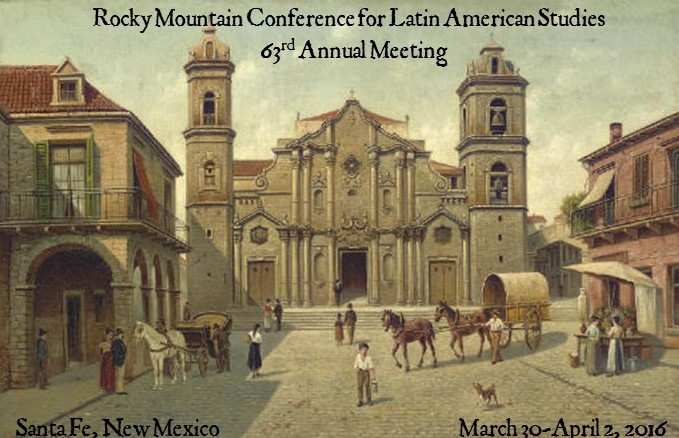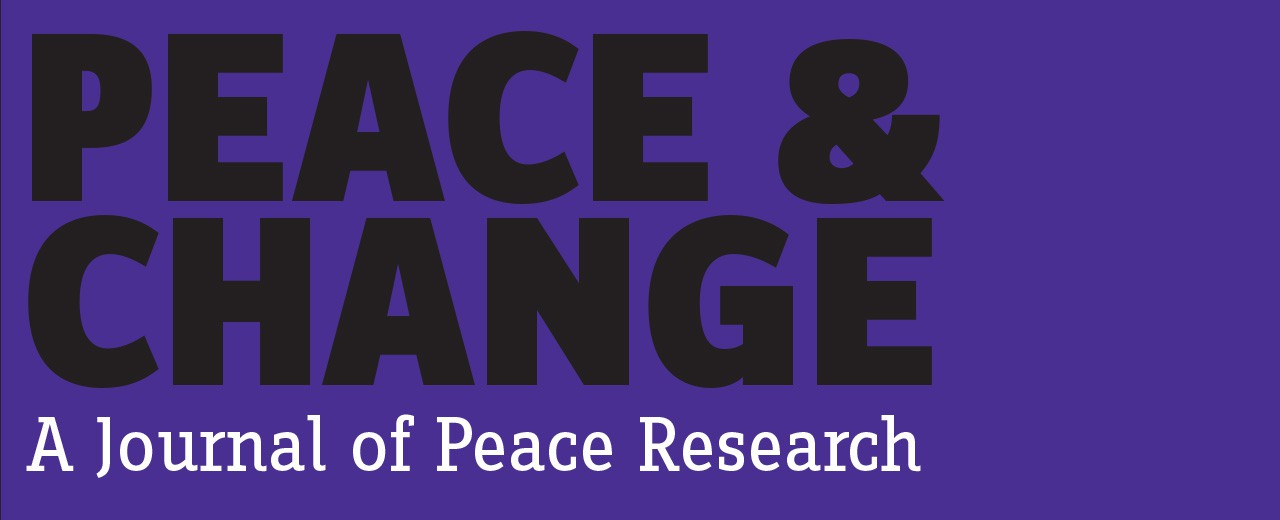
This past week I attended the 63rd Annual Meeting of the Rocky Mountain Conference for Latin American Studies hosted by the Rocky Mountain Council for Latin American Studies (RMCLAS) in Santa Fe, NM. While at the conference, I attended a number of panels and roundtables that presented scholarship and teaching practices that might prove interesting to peace and activist scholars.
Transnationalism proved a popular topic at the conference with three panels and a roundtable discussion dedicated to the theme. It is also not surprising that I attended these panels considering that I examine transnational networks. One particular panel, titled “Without Passports: International Solidarity in the Cold War,” presented a different views on international cooperation between North American and Latin American activists. In “International Agents: Locating Transnationalism in the Chicano Movement,” University of New Mexico graduate student Victor Andrew Oneschuck detailed the connections between the Chicano movement and political movements in Cuba and Nicaragua. Taylor Perk, also a graduate student at the University of New Mexico examined the often contested relationship between U.S. and Chilean Maoists with his paper titled “A World to Win: Chile, the United States, and the Formation of Maoism.” Finally, Griselda Jarquin, a graduate student at the University of California, Davis, discussed the transnational activism of The Berkeley-Leon Sister City Association during the Nicaraguan Revolution.
Sprinkled among the various panels were a number of other papers that addressed activism in Latin America. Claudia Rueda, a professor at Texas A&M at Corpus Cristi, detailed the relationship between Nicaraguan students and U.S. diplomats in the 1960s with her paper, “Unlikely Bedfellows: Nicaraguan Students and their Allies in the 1960s.” In a look at more contemporary Latin American protest, Cheryl Jiménez Frei, a doctoral candidate at the University of California, Santa Barbara, examined monuments and memorials as sites of political protest and contestation in modern Buenos Aires in her paper, “Public Protest, Performance, and Participation: Shaping Historical Memory and the Monumental Landscape in Buenos Aires.”a. In the same panel, Sarah Cline, a professor of history at University of California, Santa Barbara, highlighted the importance of Wikipedia as a space for academics to participate in public history, arguing that creating content for the digital encyclopedia would reach far more readers than is possible with traditional scholarly publications.
One panel that might be particularly interesting to the readership of Peace and Change addressed the current legal struggles of Central Americans seeking asylum in the United States. Elizabeth Hutchison (ehutch@unm.edu) and Kimberly Gauderman (kgaud@unm.edu), both faculty at the University of New Mexico, joined Maria Baldini-Poterman and Natalie Hansen (natalie@hansentaylor.com), both lawyers specializing in asylum cases, to discuss the experiences of and difficulties faced by those fleeing Central America out of fear for their own safety. For many fleeing Central American violence, their experience in the United States is little better than the one the left, with many being held for months, and sometimes years, in squalid detention centers along the border. If denied asylum, many refugees are deported back to their home country where a majority fall victim to the violence they fled. In response, the presenters highlighted the need for scholars as “expert witnesses” and issued a call to action, asking that those interested provide their emails in order to join a growing database of academics and other experts willing to help those seeking asylum. Although the database itself is still being created, the panelists advised those interested in joining the list of expert witnesses to contact them and to visit the University of California, Hastings College of Law’s Center for Gender and Refugee Studies or the Executive Office for Immigration Review.
Finally, in a roundtable discussion of gaming and history education, of which the author was a participant, participants engaged in a discussion of various interactive teaching methods. A subject of significant discussion was Reacting to the Past (RTTP), a role-playing experience in which students assume the role of a historical figure in a historical scenario. Scenarios can be found at the RTTP website, along with guides for instructors. Many of participants in the discussion had used Reacting to the Past in their classrooms and had significant praise for the gamified learning experience.
In sum, RMCLAS 2016 was once again a fantastic experience. There is a significant and growing study of Latin American activism, particularly in the transnational twentieth century, and significant spaces for scholars to engage in public discourses on pedagogy and politics. Ultimately, it was encouraging to find the places where are others are engaging the intersections between peace history and Latin American Studies.

Reblogged this on Andrew W. Wilson and commented:
Another piece I wrote up for Peace and Change
LikeLike